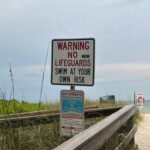VERO BEACH — Judge David Morgan ruled Monday that results from a search warrant that authorized a blood alcohol test will stand in the case against an accused drunk driver in Vero Beach.
The ruling, if it had gone in the defendant’s favor, could have altered and possibly ended the Vero Beach Police Department’s practice of using search warrants to compel blood samples when drivers refuse to perform breath tests in DUI cases. Defense attorney Andy Metcalf, representing Jason Griffeth in his November DUI arrest, filed a motion to suppress the blood test results. Judge Morgan denied the motion.
“Most, if not all, of the issues raised by the defendant have been considered and rejected by other County Courts in Duval and Brevard Counties,” Judge Morgan wrote in his court ruling.
Metcalf argued that the search warrant the police department requested and received was invalid because the blood collected was not a “means to the crime.” However, police argued that the alcohol in the blood was the means and that in order to collect that evidence, the blood needed to be taken.
“The defense has offered no good reason why blood should not be considered ‘property,'” the judge decided.
In Griffeth’s case, he was pulled over on suspicion of driving under the influence after an officer clocked him going 60 mph in a 45 mph zone and failing to maintain his lane. The officer smelled alcohol on Griffeth’s breath and had the man perform field sobriety exercises, which he performed poorly, according to court records.
Griffeth’s refused to take a Breathalyzer test, prompting the police department to ask the court for a search warrant for the blood sample. That warrant was subsequently approved.
The Vero Beach Police Department has been working with the State Attorney’s Office to establish a procedure for drawing blood when search warrants are issued. Indian River Medical Center has agreed to provide the needed personnel to perform such work.
All Florida drivers agree to take a Breathalyzer test when obtaining their driver’s license, but one study estimates that close to half the drivers in Florida refuse when asked by the police.The first time a driver refuses a Breathalyzer, the state can take away his driver’s license for a year. Refusing during a second DUI arrest is a criminal offense, punishable by up to a year in jail.Managing Editor Ian Love contributed to this report.






